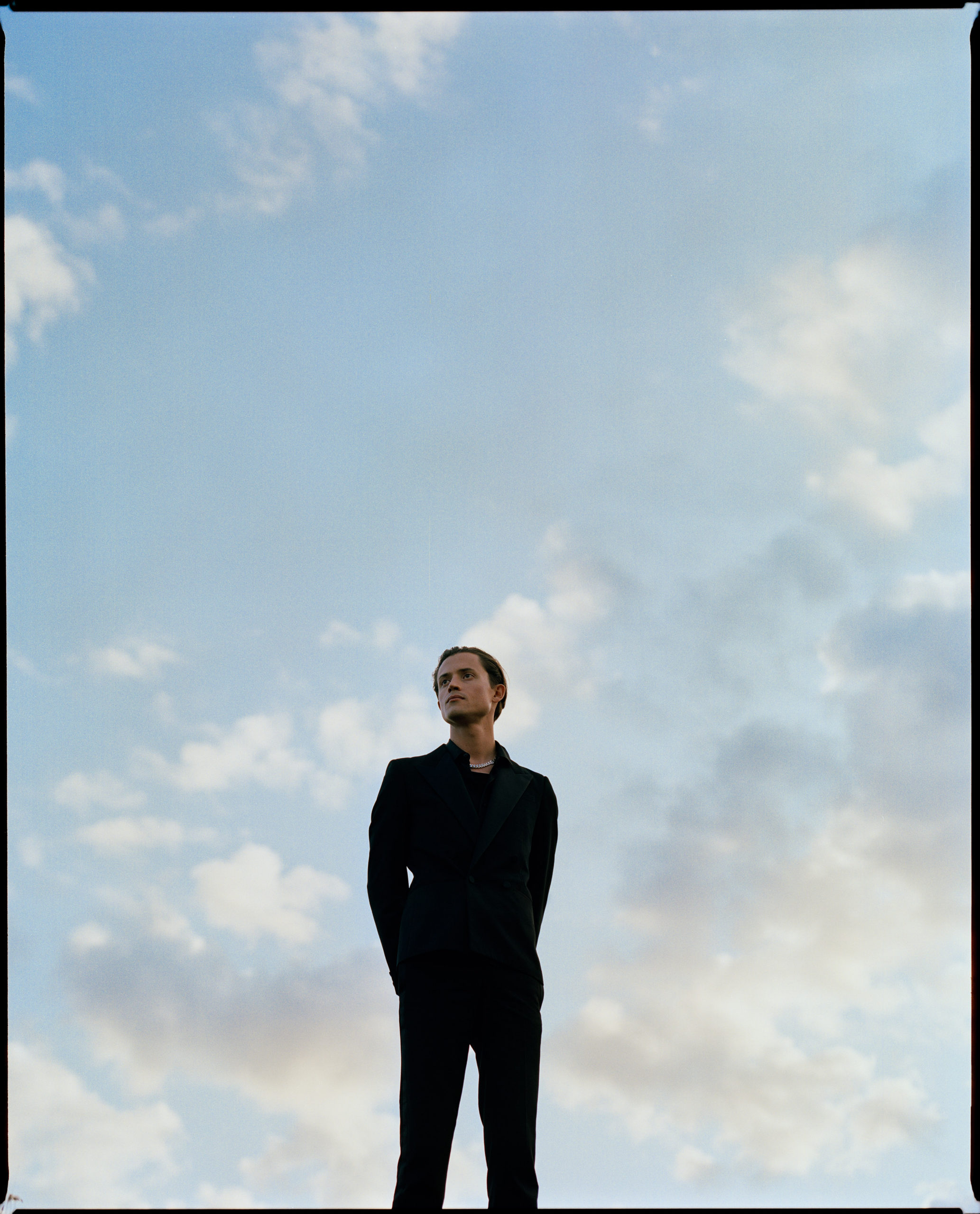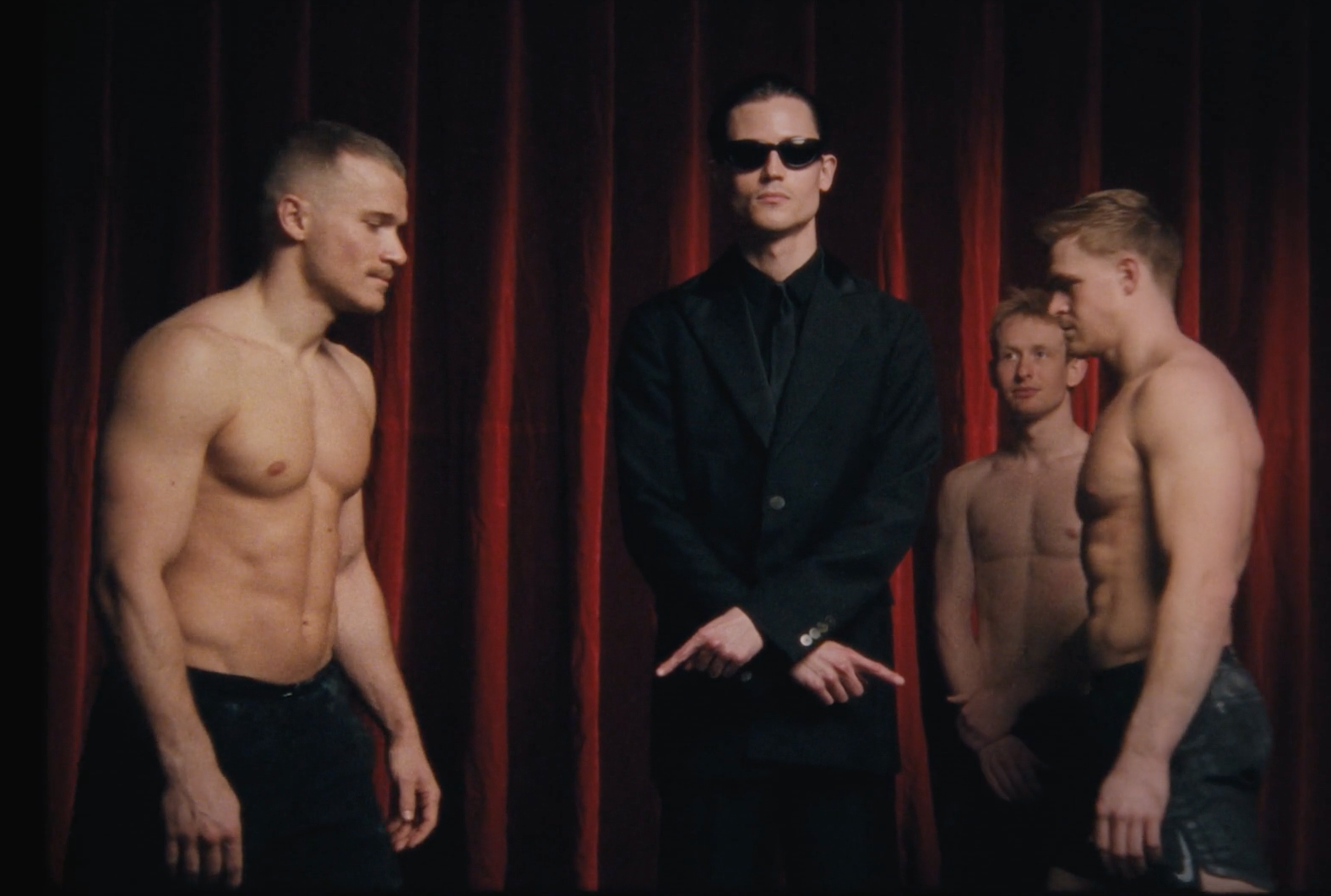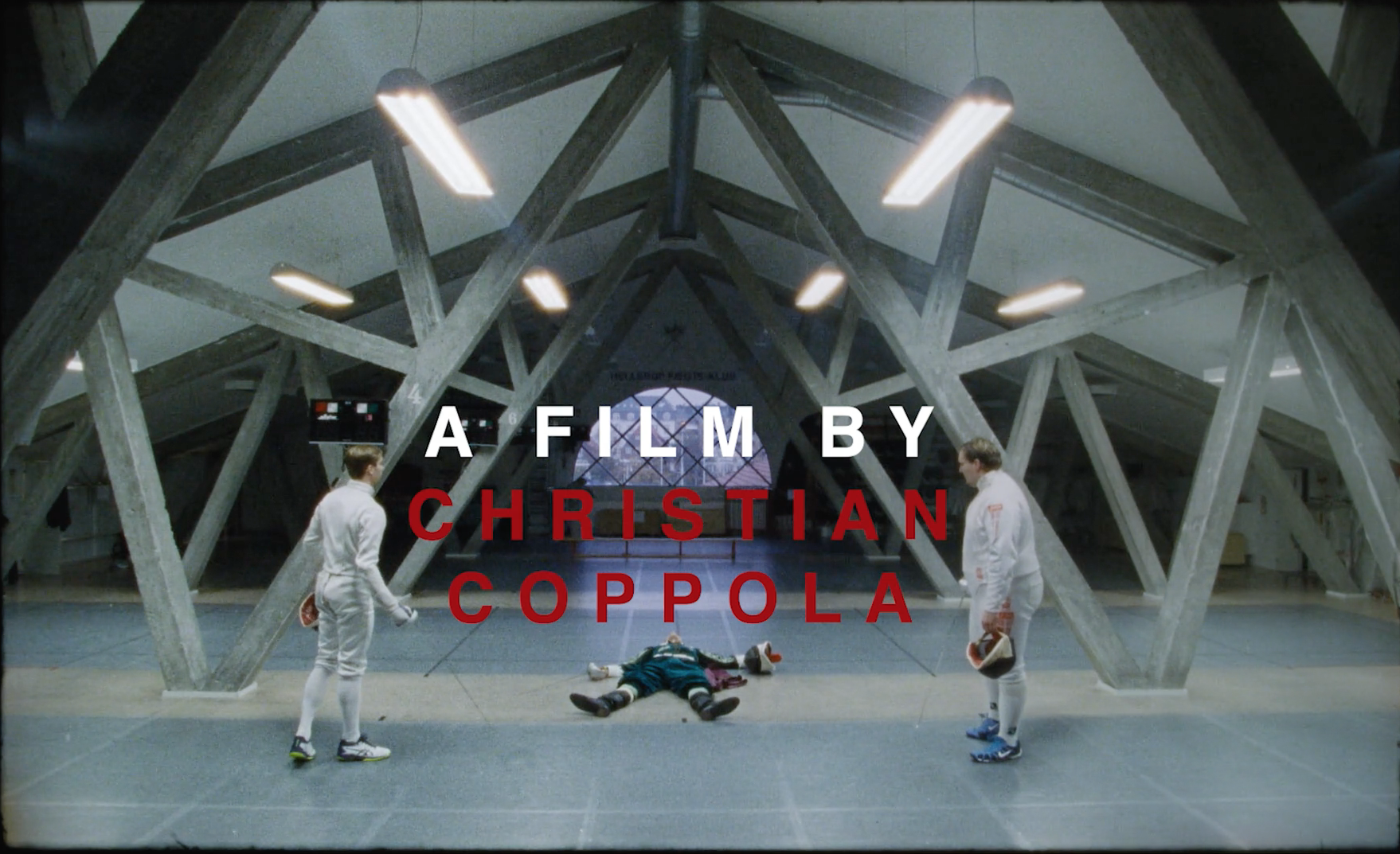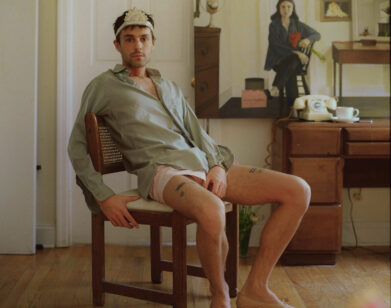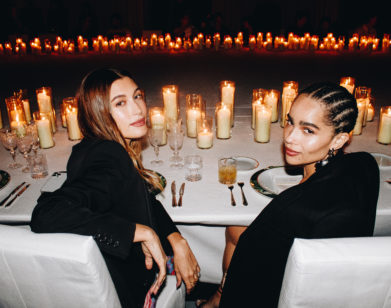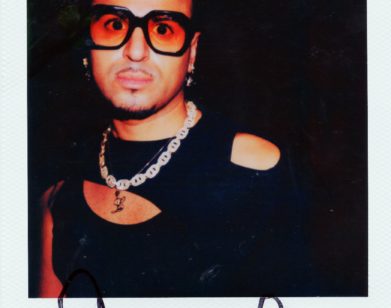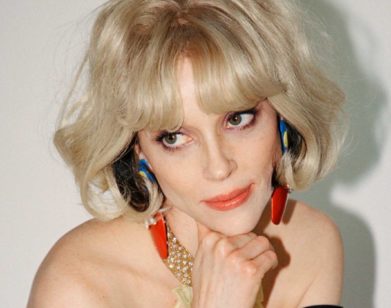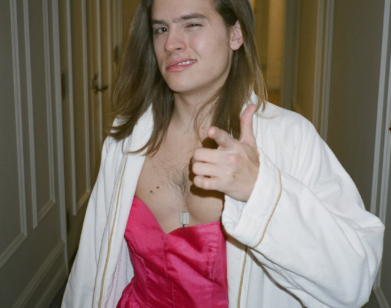FILM!
Christian Coppola Wants Perfume Genius to Score His Next Movie
Christian Coppola had just graduated from NYU’s Tisch School of The Arts when COVID-19 hit. Stifled by the pandemic restrictions at home in the US, the 29-year-old filmmaker decided to take his creativity overseas to Denmark, where he enrolled in a masterclass with the Danish director Jørgen Leth. During the “anti-film school” lecture series, Coppola found himself embracing the Dogme 95 movement, a branch of filmmaking spearheaded by directors like Lars Von Trier, who are known for prioritizing story, acting, and theme, while forgoing the use of elaborate special effects. Now, Coppola is back with The Danish Trilogy, a series of films that hope to establish the young auteur as a rebellious filmmaker, actor, and artist. Ahead of the release of the first film, Ode to Joy, Coppola called Interview to discuss his playfully chaotic workflow, and what it was like to portray an 18th-century Danish prince in his new project.
———
CHRISTIAN COPPOLA: How are you doing? I haven’t talked to you in a while.
ERNESTO MACIAS: The last time we spoke was when you released Daddy.
COPPOLA: That was a while ago. Time doesn’t really exist for me anymore.
MACIAS: Where are you calling me from?
COPPOLA: I’m in Dallas.
MACIAS: What are you doing in Texas?
COPPOLA: I was in Europe for a month-and-a-half. I was running around working, collecting inspiration, and seeing people. [After trips], I always try to come back and see my parents, see my dogs, and get a sense of stability.
MACIAS: That’s a very artistic way of going through life. A lot has changed in the world since you released Daddy. What else have you been up to?
COPPOLA: After Daddy, I went to Denmark [to do a masterclass]. What made that period so informative on my work was the way I was able to approach filmmaking. I didn’t feel the restraints of following a certain structure. I was more interested in breaking rules and being in a new place where I felt incredibly alien. It made me feel weirdly comfortable. Part of the program was [studying] a movement called Dogme 95. It was started by Thomas Vinterberg who directed Another Round, which just won the best foreign-language film, and Lars Von Trier. It challenges filmmakers to break their own rules, and although I didn’t follow the exact template that they had laid out, I was able to tell stories in a way that felt foreign to me—both literally and physically—by being in this other country and embodying my experience of that place. It’s about experimenting and keeping that playfulness alive, nobody is telling you what to do over your shoulder.
MACIAS: How did you end up in Denmark?
COPPOLA: When we released Daddy, I was in northern Minnesota with my family on this secluded island that I had been going to since I was a child. I felt incredibly detached from the world when the film came out, and I didn’t really have a sense of how it was playing out. I hadn’t been able to make a film in a while and a friend of mine was living in Denmark and taking this masterclass with a filmmaker named Jørgen Leth. He was part of the Dogme movement. He did the Andy Warhol eating a cheeseburger clip for his film 66 Scenes from America. The goal of [the masterclass] was to create a film. Having gone to NYU Tisch film school, I had done the strategic film school approach. This was more of an anti-film school, you came in, and there were master classes by Thomas Vinterberg and Lars Von Trier. They spoke to us directly and shared their experiences as filmmakers.
MACIAS: That sounds amazing. Is there a deeper reason why you chose to make a trilogy?
COPPOLA: There’s so much that can be said with a trilogy. It gave me the opportunity to take my time and try something I’d never done before. On top of that, I had met this director at the Vanity Fair Oscar party named Joachim Trier, he directed The Worst Person in the World. I spoke to him about the idea of making a trilogy, and he told me, “I didn’t set out to make a trilogy, it just sort of happened.” That’s exactly how I would describe my experience. I genuinely never set out to do it; it was just this release.
MACIAS: How would you describe the trilogy in a sentence?
COPPOLA: I could give you two words: chaotic and playful.
%MACIAS: Why did you choose to portray a Danish prince from the 18th century?
COPPOLA: There was a lot that led up to that moment. When you go to Copenhagen or any of these Scandinavian countries, especially in the city center, the monarchy is kind of unavoidable. Denmark has one of the oldest monarchies in the world. I’ve always had a fascination with costumes, characters, and pageantry. Originally, I was going to have another actor do it, but because of COVID I had to do it myself.I wanted to see what it would be like to take someone who lives in a bubble, who isn’t in touch with reality, and plop them into society. The Great Dictator by Charlie Chaplin was this one film that I alluded to. I was creating a character that was an amalgamation of all these different narcissistic personalities that you might assume are quite detached from reality. Costumes, mannerisms, and pageantry aside, there’s something about taking past ideas of what something means and dropping them into situations that you wouldn’t expect.
MACIAS: Would you actually want to live in the 18th century?
COPPOLA: [Laughs] I’ll try anything once. There’s a funny way that people romanticize the past, but I think the present is so overwhelming.
MACIAS: You mentioned that you didn’t realize you had a trilogy of movies. Do the films stand alone or should they be consumed as one entity?
COPPOLA: I thought about dropping all three films together as one piece. But then I realized the pace of culture, or the rate at which people consume things, is just so overwhelmingly fast. I liked the idea of letting each film stand on its own, because each film is its own unique entity that feeds into a collective idea. If I had to describe the genre of each film I’d be at a loss for words, and that makes me feel like I did something right.
MACIAS: How did it feel to be the star and the director of these films?
COPPOLA: I never had a complicated relationship being in front of the camera, but in terms of my own films, that was something that I never really entertained until I was left with no choice. It’s an incredibly tiring process to have to steer production and put your faith in people to be able to capture it the way [you want], but there was something incredibly thrilling about that experience. It gave me a lot of insight into working with actors and talent, and it opened up new ways of thinking for me as a storyteller.
MACIAS: I want to talk about the soundtrack, it’s quite peculiar. There’s techno and recordings from the original Camelot Broadway soundtrack. What was the idea behind that and who did you work with on it?
COPPOLA: One of the things I wanted to do is make people feel disoriented. With the “Work It” song, if you listen to the lyrics, it’s, “You wanna know how I get away with everything? I work all the fucking time.” It’s almost feeding into the delusion of the character and feeding into the headspace of where he’s at, which is all over the place. The Camelot song we might swap out with a Perfume Genius song from the new record.
MACIAS: The other day I saw someone on Twitter say that Perfume Genius is just the American Björk, and it made me laugh really hard because it’s true.
COPPOLA: That’s a great way to describe it. If I ever make a feature film, I want Perfume Genius to score it. Music is a really important tool, and I feel like it’s incredibly informative for how we experience our inner lives. Because there is no dialogue in this film I am incredibly particular about which lyrics and melodies are doing the talking. I like to let it all speak for itself and also leave a sense of mystery.
MACIAS: I think we need a little mystery in our current culture.
COPPOLA: I agree. I really think subtlety, mystery, and ambiguity are what make life worth living. I want more nuance. We’re seeing the resurgence of Top Gun and all these different tent poles that existed in the ’90s and early ’00s because people have a hard time discovering the nuance in the present. That’s the type of work that I’m interested in. I want to make work that feels new, transcendent, mysterious, and ambiguous.
MACIAS: What made you think this is the right project to release right now?
COPPOLA: This prince film has essentially been done for over two years. Not much has changed. I let myself live with the films. I really wanted to take the time to grapple with my own identity as a filmmaker. There’s that David Bowie quote where he says, “Once you’re starting to wade out into the water and you feel like going too deep, that’s when you need to keep going.” That’s something that I’ve really tried to chase in my own work, to create things that I never really would have dreamed of making.

